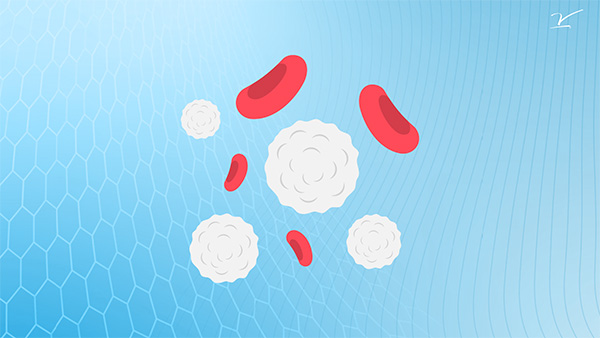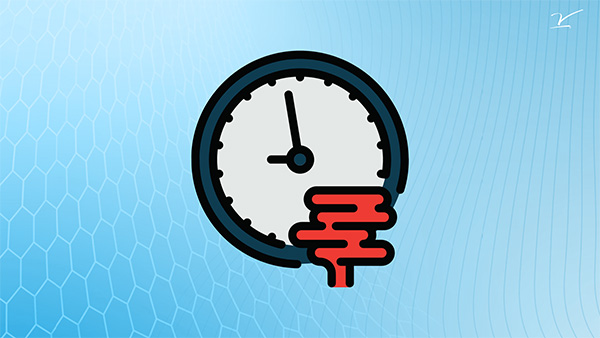Susanna’s Cool Cancer Research Finds: June 2024
Every week, Dr. Susanna Greer, the V Foundation's Chief Scientific Officer, shares her cool cancer research finds on LinkedIn. Read more below to see highlights from the latest top finds!
May 31, 2024
They’re changing the landscape of cancer therapy.
This week’s Cool Cancer Find comes to us from the V Foundation grantee Dr. Benjamin Izar and his lab at Columbia University Irving Medical Center and the Herbert Irving Comprehensive Cancer Center.
In this study, Dr. Izar and his team made a series of groundbreaking discoveries that will impact cancer treatment for decades involving fine-tuning specific genes in T cells. I write about T cells a lot in my newsletter, because they come up often these days in cancer research and treatment regimes. For those newer to all things cool about our immune systems – T cells are a type of white blood cell (immune cell) that play critical roles in cancer by identifying and destroying infected or cancerous cells.
One major problem for cancer researchers is that not all T cells are equally good at recognizing and destroying cancer cells. Some T cells are not strong enough, specific enough, or they get tired too quickly and ‘give up’ when fighting cancer. Dr. Izar and his team wanted to better understand the genetic factors that impact T cell function, in hopes of identifying ways to enhance the ability of T cells to fight cancer more effectively and more consistently.
 In this study, the Izar group systematically altered specific genes in T cells, creating thousands (!) of different genetic variants. Once they’d done so, and this was a huge undertaking, they discovered which genetic changes made T cells more potent cancer fighters. They identified several changes that either enhanced (gain-of-function) or impaired (loss-of-function) the T cells’ ability to fight cancer.
In this study, the Izar group systematically altered specific genes in T cells, creating thousands (!) of different genetic variants. Once they’d done so, and this was a huge undertaking, they discovered which genetic changes made T cells more potent cancer fighters. They identified several changes that either enhanced (gain-of-function) or impaired (loss-of-function) the T cells’ ability to fight cancer.
So, why does this matter for us? And for cancer therapy in general? You may have heard of CAR T cell therapy, where a patient’s T cells are modified in the lab to express a Chimeric Antigen Receptor (CAR), which allows these T cells to better recognize and attack cancer cells. A VERY cool application of the findings from Dr. Izar’s discovery is that when they edited specific genes which play critical roles in T cell function, the results were T cells that were significantly more effective at targeting and destroying cancer cells, including melanoma and leukemia cells, and the techniques worked in modified CAR T cells as well.
The implications of these findings are vast: these enhanced T cells could lead to more powerful and precise immunotherapies, offering new hope for patients with hard-to-treat cancers. This research not only advances our understanding of T cell biology but also opens the door to developing more effective and personalized cancer treatments, potentially transforming the landscape of cancer therapy. Way to go Dr. Izar and team!
Find Dr. Izar and his lab at Benjamin Izar, MD, PhD | Herbert Irving Comprehensive Cancer Center (HICCC) – New York (columbia.edu) and read his paper at Mapping variant effects on anti-tumor hallmarks of primary human T cells with base-editing screens | Nature Biotechnology
June 8, 2024
You aren’t going to believe what V Foundation researchers have discovered this ‘time…’
This week’s Cool Cancer Find introduces us to the circadian clock, our body’s internal timekeeper, which plays a crucial role in how your immune system works. This study comes from the V Foundation grantee Dr. Selma Masri from the University of California, Irvine who published “Circadian control of tumor immunosuppression affects efficacy of immune checkpoint blockade” in Nature Immunology. This is one of the COOLEST papers I have read in a long time!
 The circadian clock helps regulate when certain immune cells become active, which is important for defending against infections and fighting cancer. Imagine this clock as the conductor of an orchestra, ensuring that each instrument (or immune cell in this case…) plays at the right time for a harmonious performance. Understanding this clock can make cancer treatments more effective, which is where Dr. Masri’s research comes in.
The circadian clock helps regulate when certain immune cells become active, which is important for defending against infections and fighting cancer. Imagine this clock as the conductor of an orchestra, ensuring that each instrument (or immune cell in this case…) plays at the right time for a harmonious performance. Understanding this clock can make cancer treatments more effective, which is where Dr. Masri’s research comes in.
The Masri team found that the activity of immune cells changes throughout the day. Immune cells that can suppress the immune system’s ability to attack cancer peak at certain times in and around tumors. This discovery is important because it suggests that the timing of cancer treatments could be crucial.
Dr. Masri’s lab discovered that when the circadian clock in intestinal cells is disrupted, it leads to increased inflammation and the presence of more suppressive immune cells, making it harder for the immune system to fight cancer. However, by timing the administration of a cancer treatment called anti-PD-L1 therapy to when these suppressive cells are least abundant, they significantly improved its effectiveness. (!)
Colorectal cancer is a major health challenge worldwide, especially among young adults. Traditional treatments like chemotherapy can be harsh and have significant side effects. Immunotherapy, which boosts the body’s natural defenses to fight cancer, has shown promise but doesn’t work for everyone. Dr. Masri’s research suggests that timing immunotherapy treatments can make them more effective.
 This concept, known as “chronomedicine,” is like planning your activities for the best time of day. Just as you might perform better at work in the morning and sleep better at night, administering cancer treatments at the right time can also improve their success and reduce side effects. This VERY cool study shows that the body’s internal clock influences the immune system’s ability to fight cancer. Timing cancer treatments in sync with this clock can enhance their effectiveness. This discovery opens new possibilities for improving cancer treatments, offering hope for better outcomes for colorectal cancer patients and potentially those with other types of cancer as well. Congratulations Dr. Masri-incredible work!
This concept, known as “chronomedicine,” is like planning your activities for the best time of day. Just as you might perform better at work in the morning and sleep better at night, administering cancer treatments at the right time can also improve their success and reduce side effects. This VERY cool study shows that the body’s internal clock influences the immune system’s ability to fight cancer. Timing cancer treatments in sync with this clock can enhance their effectiveness. This discovery opens new possibilities for improving cancer treatments, offering hope for better outcomes for colorectal cancer patients and potentially those with other types of cancer as well. Congratulations Dr. Masri-incredible work!
You can find the Masri team here UC Irvine – Faculty Profile System and read their paper at Circadian control of tumor immunosuppression affects efficacy of immune checkpoint blockade | Nature Immunology.
June 22, 2o24
Opening the door to new treatments for cancer patients.
 This week’s Cool Cancer Find is about the BRCA2 gene and comes from the lab of @ the V Foundation grantee Dr. @ Tony Huang @ New York University. To understand Dr. Huang’s study, imagine your body’s DNA as a set of intricate, detailed instructions for building and maintaining a healthy life. These instructions are copied millions of times as cells divide and grow. BRCA2 is a diligent proofreader ensuring these copies are error-free. When BRCA2 malfunctions, errors happen, potentially leading to cancer. Dr. Huang’s study focuses on BRCA2’s role in preventing a specific type of cancer that happens when the cell reads and copies DNA simultaneously. It’s like to trying to read a book while someone else is writing in it, but they are going in the opposite direction, something researchers call a “head-on transcription-replication conflict” or HO-TRC. These HO-TRCs create total chaos in cells, making it hard to read or write without errors.
This week’s Cool Cancer Find is about the BRCA2 gene and comes from the lab of @ the V Foundation grantee Dr. @ Tony Huang @ New York University. To understand Dr. Huang’s study, imagine your body’s DNA as a set of intricate, detailed instructions for building and maintaining a healthy life. These instructions are copied millions of times as cells divide and grow. BRCA2 is a diligent proofreader ensuring these copies are error-free. When BRCA2 malfunctions, errors happen, potentially leading to cancer. Dr. Huang’s study focuses on BRCA2’s role in preventing a specific type of cancer that happens when the cell reads and copies DNA simultaneously. It’s like to trying to read a book while someone else is writing in it, but they are going in the opposite direction, something researchers call a “head-on transcription-replication conflict” or HO-TRC. These HO-TRCs create total chaos in cells, making it hard to read or write without errors.
Dr. Huang and his team investigated this phenomenon by examining specific places on the DNA where copying starts, similar to mapping doors in a building used for entering and exiting. They found that under stress, cells activate additional, backup entry points called “dormant origins” to keep up with the copying process. However, these dormant origins can cause HO-TRCs when they are too close to the busy DNA regions being actively read. In healthy cells, BRCA2 helps manage this by recruiting another protein, RNase H2, which clears the roadblocks and smooths out the reading and writing process; imagine RNase H2 as a cleaner who tidies up messes from what are basically head-on collisions.
 The Huang lab used cool imaging to actually visualize these conflicts in cells. They showed that when BRCA2 is missing or defective, the messes, known as R-loops, pile up, leading to more errors and DNA damage. This research has significant implications for cancer patients. Understanding how BRCA2 prevents this damage clarifies why its loss increases cancer risk, especially in ovarian and breast cancers. This knowledge aids in developing drugs that can mimic BRCA2’s role or help clear the mess caused by its absence. Additionally, for individuals with BRCA2 mutations, this understanding could lead to preventive measures that lower their cancer risk. I love this study; it highlights the critical behind-the-scenes work of BRCA2, emphasizing the importance of basic research in uncovering cellular processes and paving the way for improved cancer treatments. Incredible work Dr. Huang! Read Dr. Huang’s paper at https://doi.org/10.1038/s41467-024-48286-1 and follow his lab at Tony T. Huang (nyu.edu).
The Huang lab used cool imaging to actually visualize these conflicts in cells. They showed that when BRCA2 is missing or defective, the messes, known as R-loops, pile up, leading to more errors and DNA damage. This research has significant implications for cancer patients. Understanding how BRCA2 prevents this damage clarifies why its loss increases cancer risk, especially in ovarian and breast cancers. This knowledge aids in developing drugs that can mimic BRCA2’s role or help clear the mess caused by its absence. Additionally, for individuals with BRCA2 mutations, this understanding could lead to preventive measures that lower their cancer risk. I love this study; it highlights the critical behind-the-scenes work of BRCA2, emphasizing the importance of basic research in uncovering cellular processes and paving the way for improved cancer treatments. Incredible work Dr. Huang! Read Dr. Huang’s paper at https://doi.org/10.1038/s41467-024-48286-1 and follow his lab at Tony T. Huang (nyu.edu).




